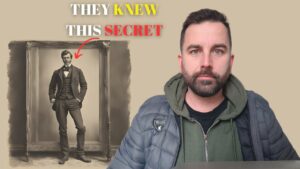Carl Jung - The Power of Knowing Your Dark Side
Understanding and Integrating Our Shadow for Self-Realization and Wholeness
Introduction
In this enlightening presentation, Eternalised delves into the profound insights of Swiss psychiatrist and psychologist Carl Gustav Jung, the founder of analytical psychology. Jung revolutionized the field with his in-depth exploration of the unconscious mind, emphasizing the importance of confronting and integrating the dark side of human nature.
Quick Takeaways:
Carl Jung, the founder of analytical psychology, emphasized the importance of confronting and integrating the dark side of human nature to achieve self-realization and psychic wholeness.
Jung critiqued society’s tendency to hide unpleasant aspects of life, leading to the creation of a false persona that damages mental stability and authentic self-expression.
Acknowledging and integrating the “shadow”—the hidden, often rejected parts of oneself—is crucial for personal growth, reducing psychological projection, and enhancing relationships.
Ignoring the shadow can result in its uncontrolled emergence, causing personal and collective harm, such as depression, societal conflicts, and wars.
Shadow work involves self-awareness, honesty, and dream analysis, enabling individuals to harness energy from their shadow, find inner strength, and positively influence themselves and others.
In-Depth Insights:
Confronting the Unconscious
Jung’s confrontation with the unconscious revealed the necessity of acknowledging our dark side. While many prefer to focus solely on the light, Jung insisted that true self-realization requires facing our darker aspects. He wrote, “It is high time we realized that it is pointless to praise the light and preach it if nobody can see it. It is much more needful to teach people the art of seeing.”
The Persona and Its Pitfalls
In today’s society, there’s a tendency to display only the pleasant parts of our lives, creating an artificial view that buries our dark side. This societal pressure leads to the formation of a persona—a false social mask that makes us appear more likable to others at the expense of our mental stability. Jung warned that living inauthentically as mere numbers in a crowd prevents us from achieving self-realization.
The Existential Crisis
Realizing that we have been living a lie can shatter the false mask we wear, leading to an existential crisis. Authenticity is the key to self-realization. Jung argued that acknowledging our imperfections is essential for psychic wholeness: “There is no light without shadow and no psychic wholeness without imperfection.”
The Shadow: Our Dark Side
The shadow encompasses all the parts of ourselves we wish to avoid. It follows us throughout our lives, forming a significant part of our unconscious personality. Jung emphasized that we must confront, not repress, our darkness. He famously stated, “One does not become enlightened by imagining figures of light, but by making the darkness conscious.”
The Shadow as an Ally
The shadow is often mistaken as an enemy, but it plays a compensatory role, representing everything we lack. Jung believed that integrating our shadow is essential for personal growth. He described the shadow as containing “pure gold” in the form of psychological insight, waiting to be integrated into our personality.
The Dangers of Ignoring the Shadow
Ignoring the shadow leads to psychological projection, where we attribute our unacceptable thoughts and feelings to others. This projection can cause significant harm to personal relationships and society at large, contributing to wars, economic chaos, and racial intolerance. Jung highlighted the importance of doing our inner work to avoid falling prey to the collective shadow.
Shadow Work: A Path to Wholeness
Shadow work involves practices such as self-awareness, radical honesty, and dream analysis. By confronting our shadow, we can harness its energy for personal growth. Jung’s teachings on the shadow are explored in depth in his works, such as “The Archetypes and The Collective Unconscious” and “Aion: Researches into the Phenomenology of the Self.”
The Union of Opposites
Jung believed that the union of opposites, where light and dark meet, is the most profound experience in life. This integration leads to the self—the totality of our personality and the main goal of human psychological development. As Jung eloquently put it, “The sole purpose of human existence is to kindle a light in the darkness of mere being.”
Conclusion
Carl Jung’s insights into the dark side of human nature offer a path to self-realization and psychic wholeness. By acknowledging and integrating our shadow, we can achieve authenticity, reduce psychological projections, and positively influence our lives and the lives of those around us. For those interested in learning more about Jung’s work, Eternalised’s channel provides a comprehensive exploration of these profound concepts.
Further Reading
- “The Archetypes and The Collective Unconscious” by Carl Jung
- “Aion: Researches into the Phenomenology of the Self” by Carl Jung
- “Memories, Dreams, Reflections” by Carl Jung







